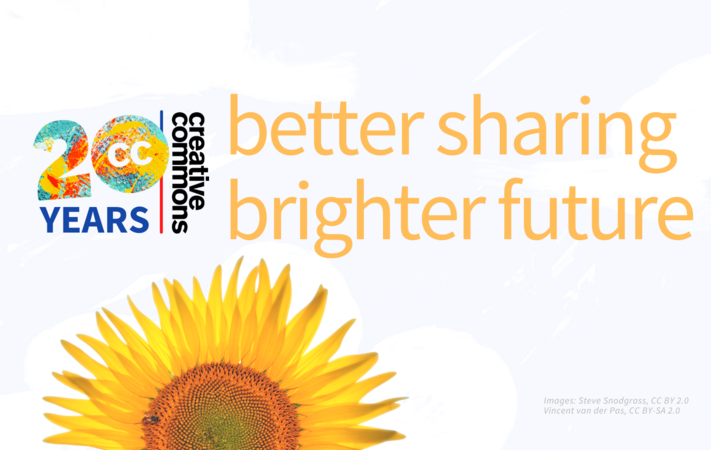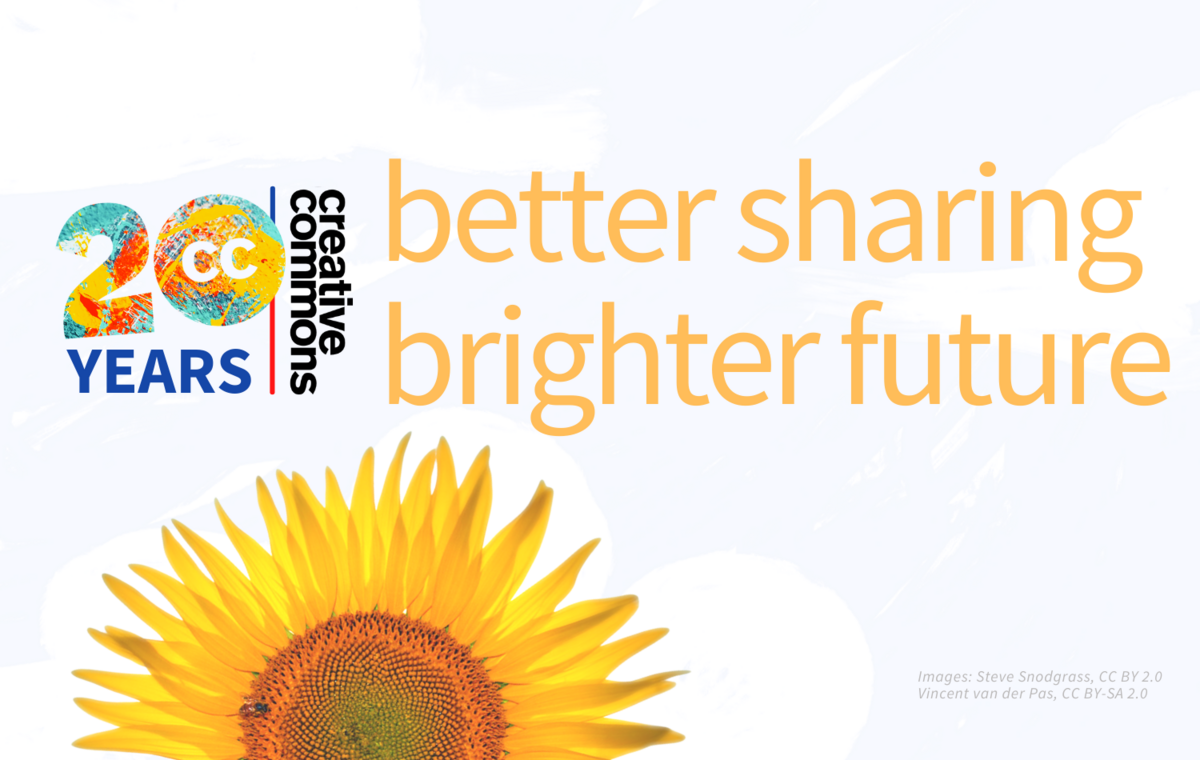Creative Commons licensing principles
+ Add to Google News
- Featured
- ro
- en
- FlorinM
- 4 years ago
- 2021-12-09 07:50:00
- comments
- : 6 minute 23 secunde
- image: Creative Commons
The principles will be useful for platforms that host CC ( Creative Commons) licensed materials and want to incorporate them into site policy to guide the expectations of users, creators who want to impose rights under a CC license, but are unsure how to do it without being too aggressive, re-users who want to know if a copyright agent might be trolling, lawyers or other professionals who want to give informed advice to creators and users of CC licensed works on enforcing rights .
Declaration on the principles of application
Creative Commons licenses are copyright licenses that are applicable by law. Although we believe it is important to abide by the terms of CC licenses, licensing should be a way to ensure that creators are treated fairly, not a trap for well-meaning re-users who are willing to correct errors. If users are afraid to use CC-licensed materials because the cost of the error is unjustifiably high, CC objectives are not met.
In short, these three principles should guide the application of CC licenses:
The main purpose of the license application should be for users to comply with the license.
Legal action should be taken in moderation.
The application may involve monetary compensation, but it should not be a business model.These principles, explained in more detail below, are designed to articulate the values ??and priorities of what the CC considers to be licensing, which supports the spirit and intent of licensing. However, CC is not the copyright holder for the vast majority of CC licensed works, so it has a limited ability to apply these principles directly.
(This is just one part of the CC's approach to licensing.)
Here are some ways we hope these principles can be helpful:
If you are a large holder of rights in CC licensed works, you may make a public commitment to enforce them in accordance with these principles to ensure re-use.
If you are a platform that accepts uploads of CC licensed works by third parties, you may require uploaders to agree that they will apply copyright to their work in accordance with these principles and you are encouraged to apply for 4.0 licenses for uploaded works. .
We hope that these principles will create expectations for licensees and licensees as to how CC intends licenses to be implemented, so that licensors are fully informed when licensing works, and disputes can be resolved more quickly and amicable way.
Most of the out-of-court settlement of copyright disputes has taken place in court, with licensors communicating to resolve their issues. If a dispute reaches the courts, we hope that this document can be used by the parties as guidance on how the licenses are intended to operate.These principles are largely based on Copyleft's free software community compliance projects, a set of guidelines endorsed by many of the key organizations that enforce copyright for free software. (Ours here differ in some important ways, but have similar intentions.)
1 . The main purpose of the license application should be for users to comply with the license.
The intention of CC licenses is for the licensed work to be used and shared so that everyone can benefit from it, knowing that they too are empowered to use and share it. Withdrawal of a work may stop copyright infringement, but also stop the distribution of the work. In a successful settlement of a CC license dispute, the work continues to be shared and the license terms are met. This is especially true if a re-user has clearly tried to comply, but has done so incorrectly or incompletely; a successful resolution should involve the reuser doing what he or she already intends to do.
Termination of the license: CC licenses prior to version 4.0 stated that the licensee's rights were terminated in violation of the license. However, version 4.0 includes a provision adopted for the first time by many other licensed administrators in the free software community, allowing automatic recovery if someone who violates the terms corrects the error within 30 days of learning it. As a licensor, you can always choose to reinstate a license that has been terminated, regardless of the version of the license you used. When you contact someone about a breach of the license terms prior to 4.0 and they take the necessary steps to correct their errors, it is recommended that you follow the 4.0 license restoration practice.
2 . Legal action should be taken in moderation.
The best way to win a lawsuit is to never have one. Litigation is costly and difficult, even for an "easy win." And most people who violate the terms of the license are confused or ignorant about how the licenses work, rather than intentionally misusing the licensed materials. It may also be difficult for bona fide reusers to make judgments about when fair use or other exceptions or limitations to copyright apply, and some may not comply with the license terms because they believe their use is falls within a copyright limitation or exception.
The best and least costly way for all parties to resolve disputes is to correct the errors and make any identifiable damages repaired as best as possible without legal action. We acknowledge that in some cases this is not enough and the dispute cannot be resolved in this way, especially if a license violation is intentional or the user does not respond, but these situations are an exception to the rule.
3 . Applying may involve recovering money, but it should not be a business model.
There are times when monetary compensation is an appropriate remedy for damage caused by someone who does not comply with a CC license. Sometimes this refers to the completion of the licensor for financial damages. For example, a licensor may claim damages equal to the amount it would have claimed in a negotiated license agreement that allows use outside of the CC license. At other times, monetary damages are an appropriate tool to discourage. For example, the award of damages may be the only way to cause a recidivist to comply with the terms of the CC license or an appropriate way to address a re-user who has benefited from their misuse.
But compensation for copyright infringement can sometimes be disproportionate to the extent of the damage and often inadequate in the case of a bona fide re-user. When the application becomes profitable, especially when licensors act in a way that suggests they want users to violate the license so that they can collect fees, it goes into trolling and violates these principles. (One feature of copyright trolling in particular is the exaggeration of possible legal damages by relying on the number of children, rather than the works, to encourage victims to pay more for the claim to disappear.)
To be clear, these principles are not intended to help bad faith re-users avoid compliance. Nor should they be used to diminish the importance of compliance with the license terms, even when the damage caused by non-compliance is not monetary. CC licenses reflect the deep belief that authors deserve credit for their work, consistent with the moral rights in force around the world. To this end, enforcement measures should include steps to remedy past damage. As far as possible, anyone who has already received a copy of the infringing work should receive any information that has been previously omitted, such as copyright and license information; this should generally be the responsibility of the user who omitted the information.
-
CC believes that enforcing its licenses is an important part of ensuring that they are meaningful for the creation of a sharing pool. But if the application of the CC license is perceived as punitive or as a result of profit rather than law, the whole community suffers. Creative Commons licenses are designed to facilitate the sharing and reuse of works, as opposed to the litigious and restrictive culture of standard copyright with all rights reserved. A reasonable application approach, which focuses on fulfilling the licensor's original intent and is correct for all parties, is most likely to support a healthy common good.
Creative Commons licenses are a set of legal tools that allow creators to freely share their work under certain simple conditions. These licenses are intended to allow the flourishing of artistic, educational, academic and expressive culture, so that the conditions of use of the CC licensed material are minimal. Someone who uses a CC license wants to share and asks for very little in return. For CC BY, credit for their work and license recognition; for the other licenses, only a few conditions regarding the way in which the work can be reused.
- powered by Verysign














